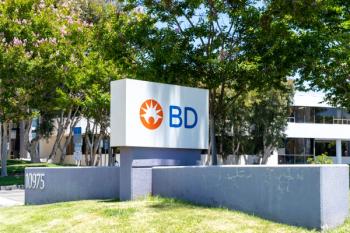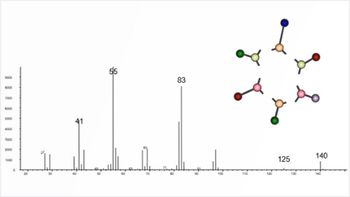
MALDI-FT-ICR-MS Identifies PET-based Insoluble Polyester Polymers and Microplastics
At ASMS 2023, Bayan Almasri of the University of Lille proposed a combination of techniques for the deciphering of insoluble polyester polymer structure.
Polyethylene terephthalate (PET)-based microplastics are among the most abundant of materials formed by degradation of polymers after certain phenomena, and are found in the blood of most humans (1). At an oral session on polymers at the annual American Society for Mass Spectrometry (ASMS) conference on Monday, June 5, 2023, Bayan Almasri of the University of Lille in Villeneuve d’Ascq, France explained how matrix-assisted laser desorption ionization with a Fourier-transform ion cyclotron resonance mass spectrometer (MALDI-FT-ICR-MS) was used to identify the modification of PET on terephthalic acid and ethylene glycol.
The paper presented by Almasri, which was co-authored by Ahmed Mazzah and Christian Rolando, both also of the University of Lille, and Youssef Bakkour, whose affiliations are with Lebanese University in Tripoli, Lebanon and King Khalid University in Abha, Saudi Arabia, also described an innovative, soft chemical depolymerization prior to MALDI-FT-ICR-MS analysis. Taken as a whole, the proposed process intended to examine microplastics the likes of which can range from 1 μm to 5 mm in size and can have lasting effects on the ecosystem, especially marine life. Mechanical fragmentation of commercial PET polyester films from bottles or fruit trays was allowed to occur either natively, after natural aging, or after ultraviolet irradiation at 365 nm, options for which there have been a lack of identification protocols or techniques up to now.
The resulting PET mini-fragments were transamidated for a period of days under vortexing, then solubilized with N,N′-dimethyl-1,3-propanediamine (DMAPA) at room temperature, with the product of that method quenched with formic acid. This material was then diluted with ultrapure water, with that solution extracted by centrifugation with petroleum ether followed by ethyl acetate and dichloromethane. An improvement in identification of water-soluble diols and polyols was desired, for which the researchers performed water-free transesterification with methanol, and derivatization of alcohols by benzoylation with dimethylaminobenzoyl chloride (DMABC).
What the MALDI-FT-ICR-MS analysis found, as Almasri explained, was that in both native and aged PET, transamidated terephthalic acid with two molecules of DMAPA was the major peak, a clear indication of successful PET degradation. But structures suggesting partial depolymerization were also discovered, such as two terephthalic acid linked with one ethylene glycol molecule with two DMAPA terminal groups. Since those types of structures were more prevalent in the native PET, the researchers concluded that chain fragmentation occurred during aging. Other observations of modifications, Almasri and team said, had been previously described but never before proven at the molecular level. They suggest that further use of the MALDI-FT-ICR-MS method preceded by a soft chemical depolymerization may require samples of few micrograms, allowing it to be performed on collected microplastics with high sensitivity.
Reference
(1) Almasri, B.; Mazzah, A.; Bakkour, Y.; Rolando, C. Structural identification of PET (Polyethylene terephthalate) insoluble polyester polymers and microplastics by chemical depolymerization & advanced mass spectrometry. Presented at the 71st American Society for Mass Spectrometry Conference on Mass Spectrometry and Allied Topics, Houston, Texas, June 5, 2023.
Newsletter
Join the global community of analytical scientists who trust LCGC for insights on the latest techniques, trends, and expert solutions in chromatography.




